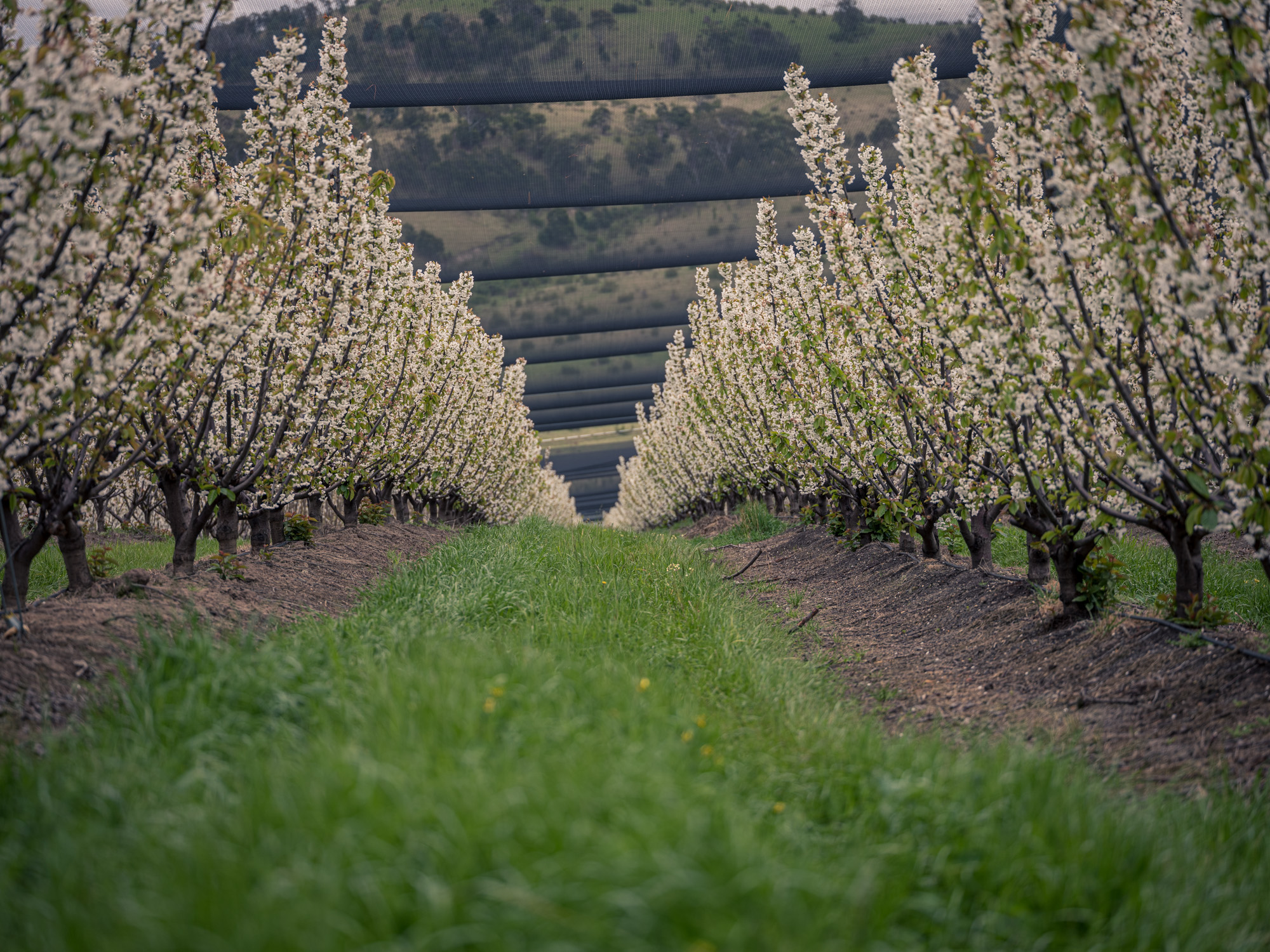Fruit industry calls for a competitive payroll tax ahead of the State election
Fruit Growers Tasmania | Tuesday, 8 July 2025, 3.00pm
Fruit Growers Tasmania has reiterated its call that the major parties and independent candidates heed industry’s plan for a competitive payroll tax.
The Tasmanian fruit industry is seeking a decrease in the payroll tax rate for the agriculture industry in regional Tasmania from 6.1 per cent to 1.2 per cent to match the rate of regional Victoria.
“This election should be about choosing a future Tasmanian government that will strike the right balance between affordable taxing and charging, and affordable spending,” Peter Cornish, Fruit Growers Tasmania CEO said.
“It’s about better determining where government involvement adds significant value to Tasmanians and where it should be less involved because the outcome doesn’t justify the cost. It’s about determining what is affordable.
“Whatever government decides to spend our money on, we need to pay for it. So, it had better be justified – whether it’s a tax or charge, a service or expenditure.
“And while governments do the heavy lifting in education and health, welfare, law enforcement, aged care, the environment, infrastructure and much more, it’s the private sector that drives economic activity and pays the bills. Governments don’t pay their own bills.
“The Tasmanian fruit industry is one of those private sector industries that pays the bills, invests in machinery, equipment, services and trees and employs thousands of people. It’s also one of Tasmania’s comparative advantages because we grow exceptional fruit, but it’s expensive to grow here, more expensive than mainland Australia.”
The Tasmanian fruit industry employs over 10,000 people and grows over $325 million worth of fruit each year, to the enjoyment of locals and visitors alike, while also sending fruit to mainland Australia and countries all over the world.
And the fruit industry employs those 10,000 people in regional areas, from Campania to Cressy, Lebrina to Lymington, Riana to Ranelagh and Westerway to Westbury.
The fruit industry also pays over $10 million in state payroll tax each year. That’s $1,000 a person whether full time or part time, seasonal or ongoing. And it’s dragging the industry back and restricting further growth and job creation.
Peter added, “For some of our fruit growers, payroll tax is the third highest cost they face after wages and superannuation. And it’s the Tasmanian Government’s decision to levy the third largest cost on those growers.
“Regional Victoria is the key competitor to Tasmania’s fruit industry – they grow in the same season as Tasmanian growers. The Victorian Government supports their growers through a lower rate of payroll tax for the regions. A large Tasmanian grower with a payroll of $10 million will pay over $500,000 in Tasmanian payroll tax compared to the $110,000 their regional Victorian counterpart pays – almost 5 times as much!”
The Tasmanian Government raises over half a billion dollars in payroll tax each year.
Last year Tasmanian payroll tax grew by $34 million, and by 2028-29 will have grown by $200 million, or more than a third. Tasmanian industry simply can’t afford that impost.
“If any Tasmanian Government wants to balance their budget or even restrict budget deficits they need to grow the private sector,’ said Peter. “It won’t do that with a payroll tax of 6.1 per cent. The highest payroll tax rate in the country!
“Payroll tax is a disincentive to employ more people. More employment means more families and a higher population. So, high payroll taxes do nothing for population growth.
“Taxes are not meant to create distortions, but payroll tax does. Not only does it discriminate against businesses who create more jobs, but it also makes our industry less competitive against interstate producers.
“Being less competitive means less investment in Tasmania and more interstate. It means our growers who have land set aside for future growth will not develop it. Less investment will mean less jobs and a smaller tax base. That won’t help to balance the budget nor help future Tasmanian governments to pay their bills,” Peter concluded.
